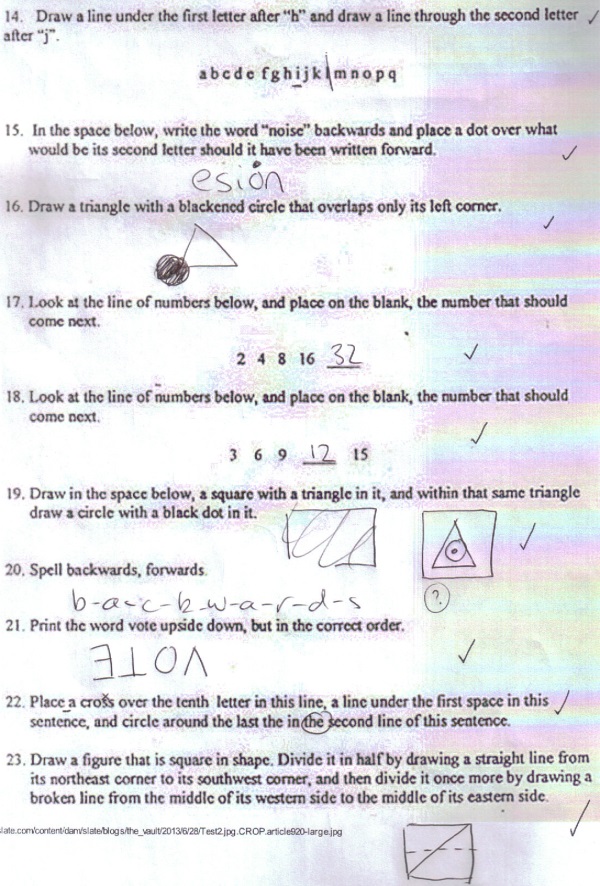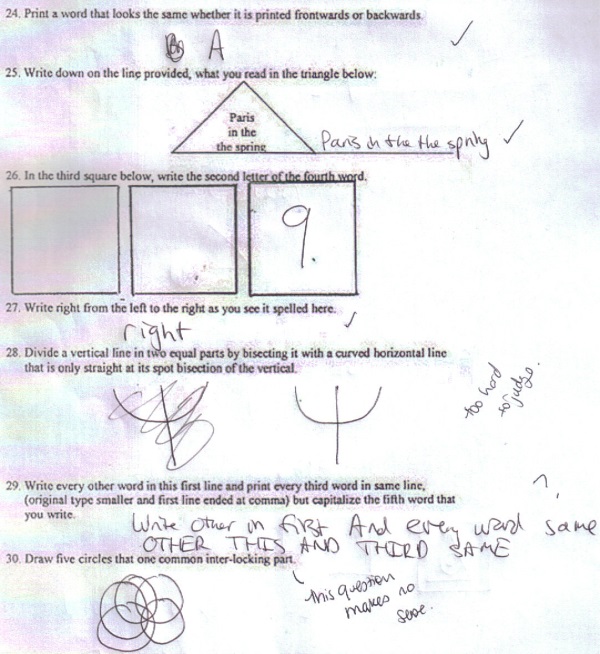It’s common to hear lamentations about the stupidity of the general voting public. “And these people vote!” is a common ending to a story about stupidity as you can see in the image above. It’s not as combative as “And these people breed!” (which I might cover later) but it’s up there.
There are two versions of the phrase that differ a lot in their connotations. The milder is the version above. And yes, it is scary that some people will place ballots in ballot boxes based on utterly fucked-up opinions. But the other version – “I can’t believe these people are allowed to vote!” is obviously a lot more sinister. The desire for “quality control” in voting is another example of how reasonableness can get co-opted by gatekeepers (see this post on reasonableness). Probably the worst example of this is the Jim Crow era literacy tests, implemented with the specific aim to prevent African Americans from being able to vote.
With the recent gutting of major provisions in the Voting Rights Act, the history of literacy tests was once again in the news. I took the literacy test below to see what my chances would have been. The test originally appeared on Slate
The test was given to those who couldn’t prove a fifth grade education. So basically people of colour only. It is reminiscent of the disgusting IQ tests that were used to classify everyone but WASPs as subhuman. (For more info read The Mismeasure of Man and its critiques). This test is a 30 question test for which candidates were given 10 minutes. I say candidates because they were essentially running for the right to vote! So you had 20 seconds per question and needed a perfect score to pass. These conditions are enough to show the monstrous nature of the tests because even if we’re overly generous to the “quality control” BS, how can it be ok to require those without formal education to do WAY better than their counterparts?
And that’s of course assuming the content of the tests is fair. It’s anything but. So, here goes (transcript of the test is here):


Let’s mention just a few advantages I had over those who actually had to take the test. Instead of 4 years of formal education or less, I’ve had over 17. During these I’ve had hundreds of opportunities to practice test-taking, which can be a very different skill from “knowing your stuff”. I’ve also had the leisure time and interest in readibg about psychology, maths and linguistics which peel back more information about the mechanics of tests like these. Part of my job involves training people to pass a test so more practice there. Finally, I’ve tended to perform very well on tests, both in terms of speed and content.
Naturally, I got several questions wrong – thereby failing the test. There were three reasons:
- Most questions are deliberately ambiguous. Spell backwards, forwards. I took that to mean to spell “backwards” forwards. Noticing the comma, it probably means to spell “forwards” backwards. But most similar questions don’t have commas so the answer can be whichever version the candidate DIDN’T use.
- At least one was an actual mistake necause I was rushing. 20 seconds a question is very fast and there’s no time for type 2 thinking or checking your answer.
- In case there was any doubt left that the test was designed for anything but failure, look at question 23. Repeating “the” over a line break is a standard trick question that a majority of the general population will get wrong. And of course it relies on a general cognitive bias which has nothing to do with general literacy. The only reason I got that one is because I’ve seen that type of question before many times. Never in a formal exam though – that’d be too unfair.
There’s almost something perverse about the idea of a sober discussion of all that’s wrong with the test because it’s not something academic. It was used to shit all over people’s rights and dignity. But to ask a candidate to write the word VOTE upside down is to taunt and dehumanise beyond belief.
This is the lens through which we should look on any talk of who “gets to” vote – no matter which country we’re in. Because society hasn’t progressed that much and we’re still in danger of reverting to a world with this test.





0 Comments